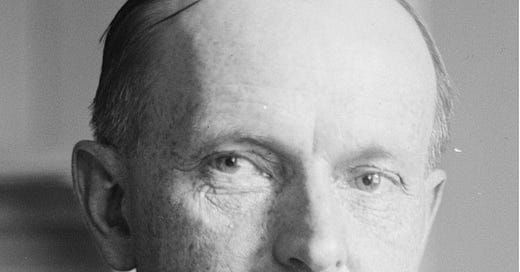I just finished reading David Greenberg's balanced and informative (and short) biography of Calvin Coolidge.
While one must avoid historicism, Coolidge ranks among our worst presidents, sowing seeds for the Great Depression. A man so frugal should have been concerned about the inflated value of stock shares during his times as president, for example.
But when asked in 1928 if he was concerned that the credit debt for stock purchases had risen $1-billion in the previous year, equal to about $18.4-billion in today's dollars, Coolidge simply said, "No."
It's unfair to lay the expectations we have today of activist presidents on Coolidge's inert approach to public policy and his unquestioning acquiescence to business interests he really thought would always act for the public good. But his incuriosity and unquestioning acceptance of a form of "trickle-down economics" did contribute to the start of the Great Depression just six months after he stepped down as president. Coolidge largely slept through or acquiesced to the prevailing forces of his day, never exerting leadership, then, depressed he was no longer in the game, died three-and-a-half years after his presidency ended, at the age of 60.
In fact, Coolidge was a tragic figure, losing his mother at a young age, then, when president, losing one of his sons, the latter event understandably decreasing his interest in his work. In this, he reminds me of another New England native who became president and, on top of grief, was, unlike Coolidge, an alcoholic, Franklin Pierce. Pierce lost his son in a train accident on the way to his inauguration. Like Coolidge, he was impassive, in the face of the great peril the nation faced in his time, impending Confederate treason in defense of the expansion of slavery despite previous agreements to the contrary.
I highly recommend Greenberg’s biography of Calvin Coolidge.
(Years ago, I posted about an inspiring incident from Coolidge’s life.)
Discussion about this post
No posts




